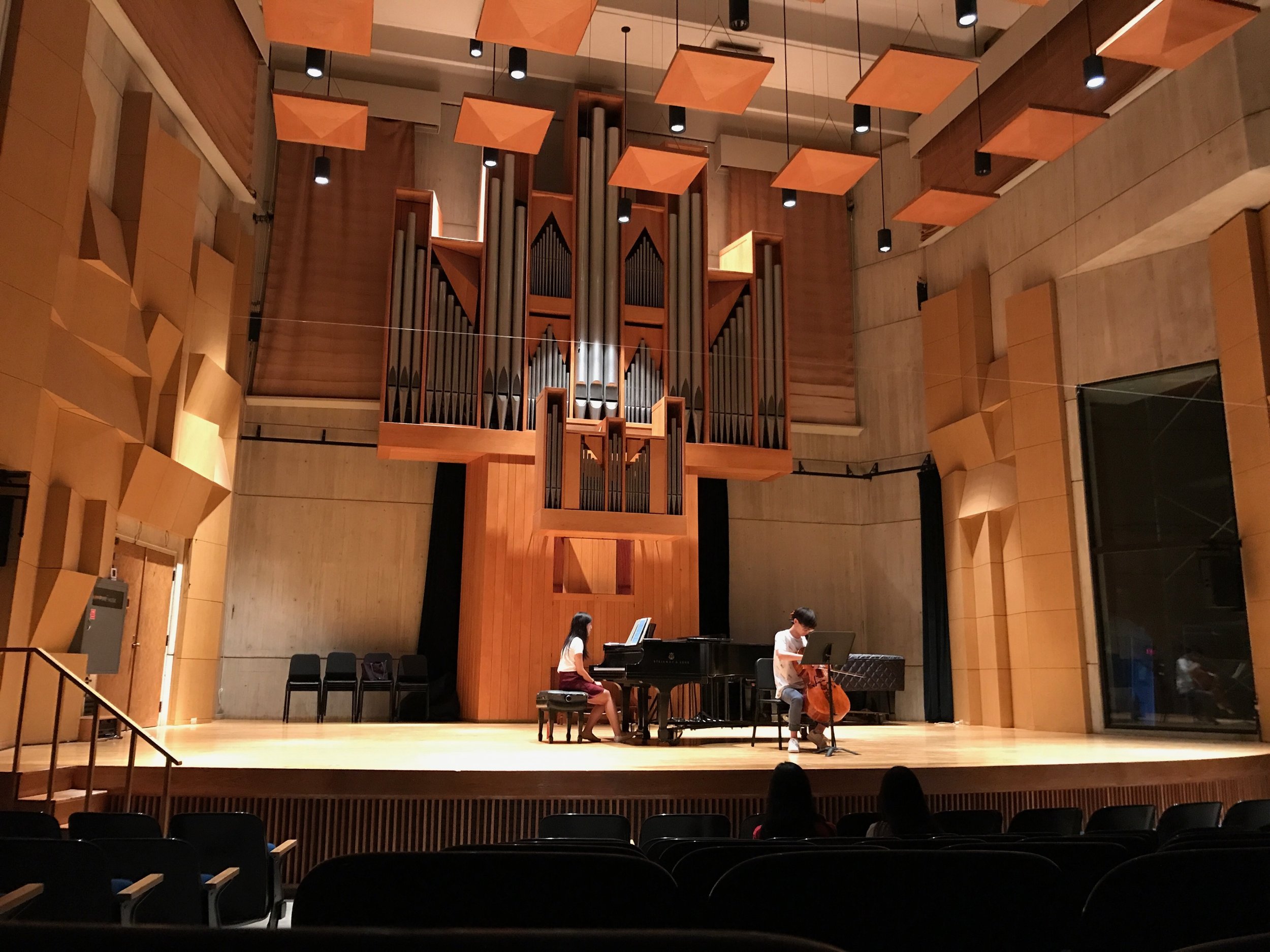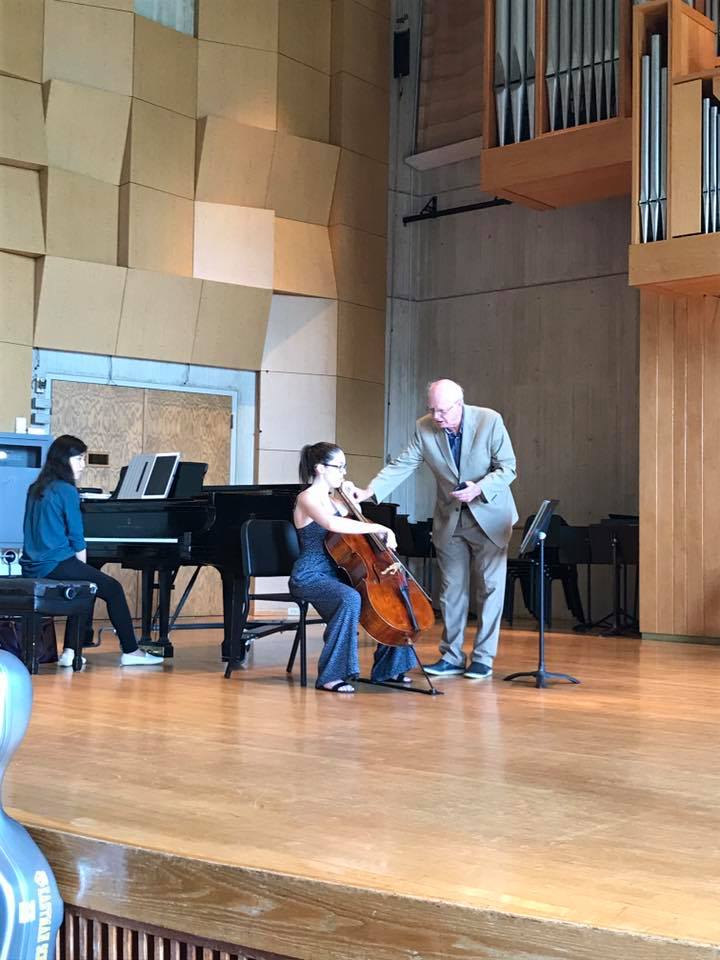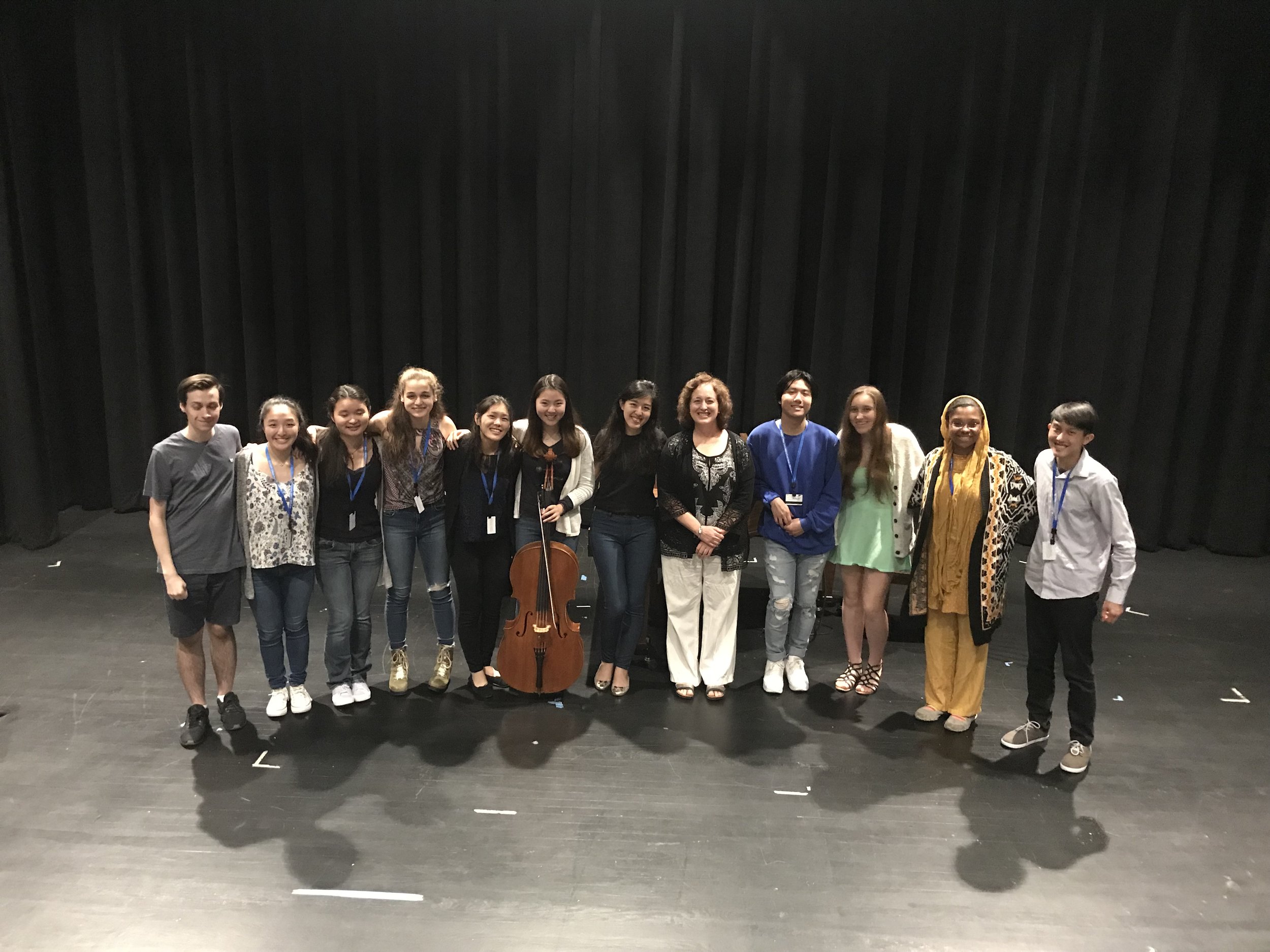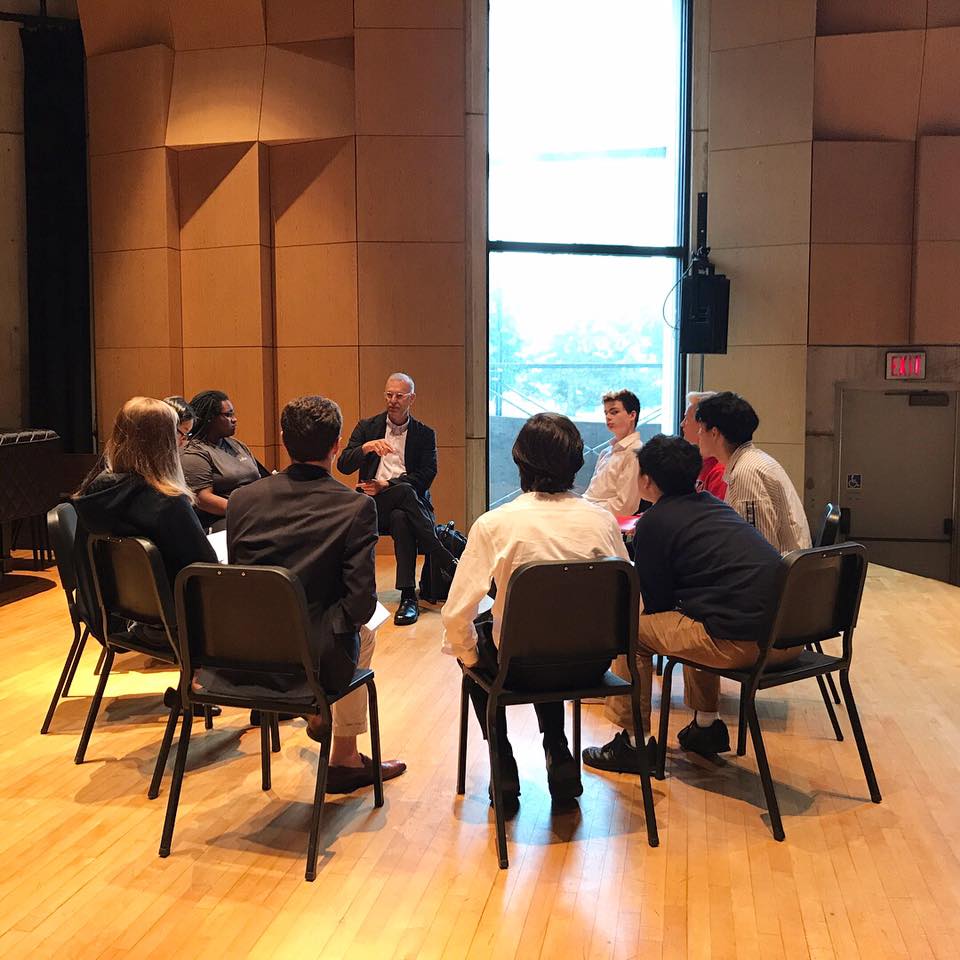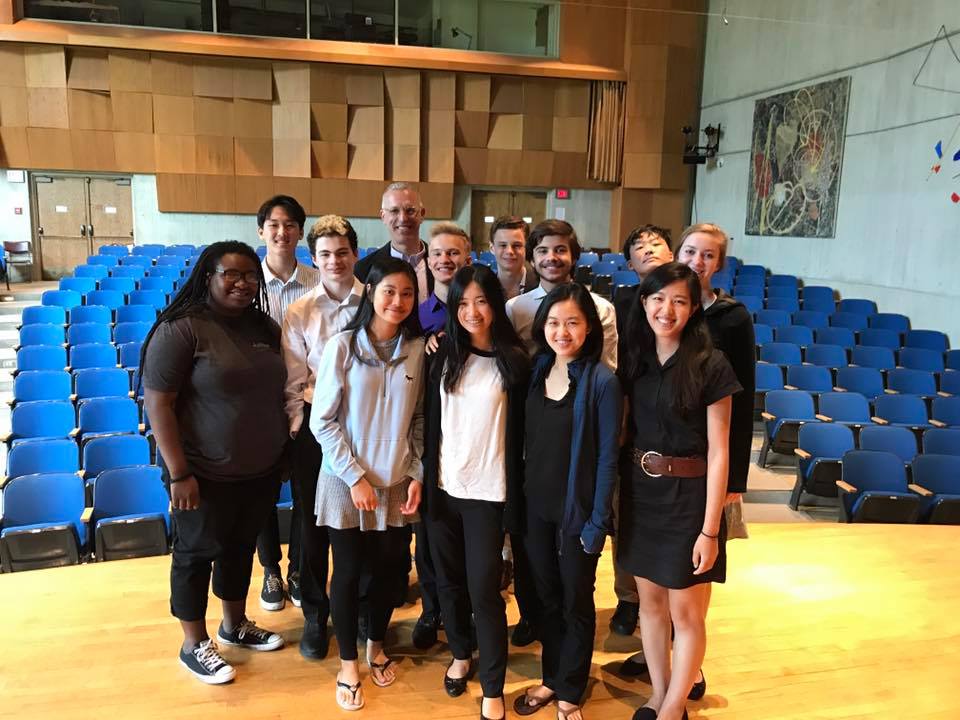A few years after embarking on my teaching career, I was working with a high school cello student preparing for her upcoming college auditions. She was remarkably comfortable playing on her own and at lessons, yet I was struck by how overcome she was with anxiety and self-doubt whenever she took an audition.
With her auditions approaching in just a few months, it dawned me that while our work together had always been focused on refining her musical interpretation, perfecting her technique, and preparing repertoire, this wasn’t sufficient. She needed real guidance and structured practice on how to successfully take an audition.
It can be such a difficult transition to go from playing just for the love of music to becoming equipped to overcome self-conscious – even crippling – doubts and come to terms with the very real consequences of auditions. As I described to my student, auditions felt so much easier when I was very young and not aware of the significance of my success or failure, but simply enjoying the excitement of playing for an audience. The stakes started to seem so much higher when I began trying out for music schools, taking orchestra auditions, and entering competitions. I only started to feel comfortable even contemplating taking auditions again when I acknowledged this vast shift and started practicing explicitly for the specific audition process.
The Conservatory Audition Workshop is a program focused exclusively on helping students prepare for college auditions. Along with select teachers from top music schools, I work with a group of young string players from all over the United States for an intense week of audition preparation. We practice specific strategies to demystify auditions and to help the participants play the best they can under pressure. It’s always thrilling to hear the results at the end of the week, and it’s even more rewarding to see the participants return home to share what they’ve learned with their friends and teachers. Life is full of things we find scary and mysterious, but the audition process doesn’t need to be one of them.
–Emily Taubl, Program Director


